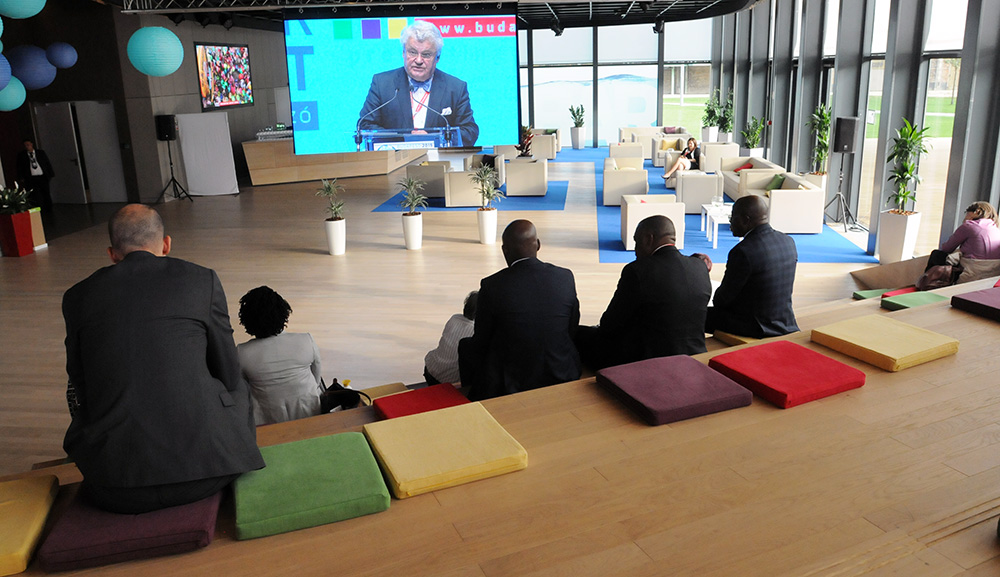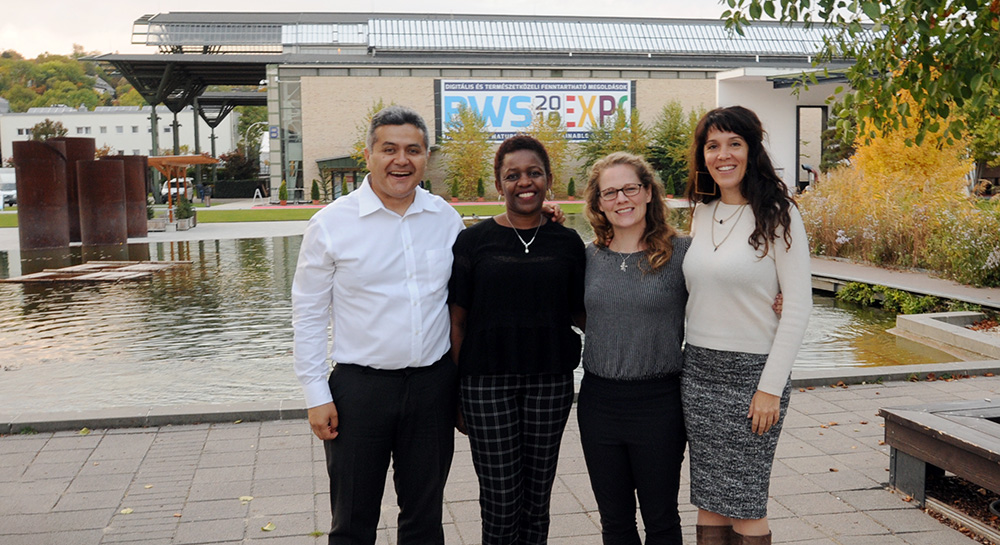Summary
Highlights for Thursday, 17 October 2019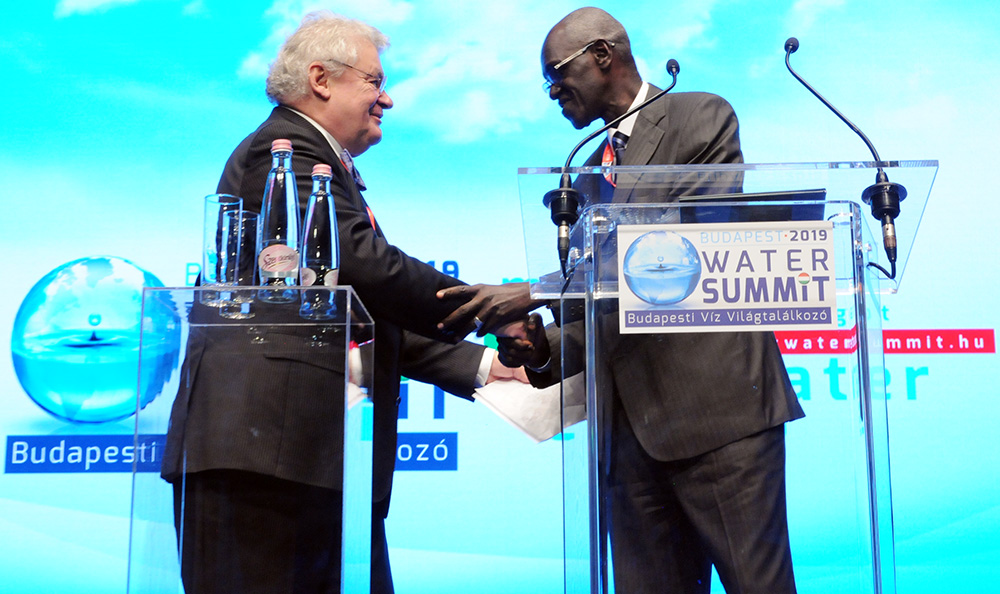
The 2019 Budapest Water Summit resumed for its final day on Thursday. Throughout the day, participants attended three sessions to continue discussing water crises, bringing together ministers and high-level representatives from Egypt, Iraq, Bangladesh, Finland, US, Hungary, Senegal and the former president of Slovenia, as well as representatives from the Holy See, United Nations Economic Commission for Europe (UNECE), Women for Water Partnership, Water Policy Group, and international research, education and law organizations and regional development banks, among others. During the sessions, participants heard keynotes followed by panel discussions on:
On implementation, panelists sought to answer the questions “the right systems for what, for whom, and for where?” Discussions involved: joint management with farmers; coordination between downstream and upstream users; balancing service delivery and resource management; ethical arguments for water management; and the need for “soft skills” of communication in governance. Mohamed Abdel Aty, Minister of Water Resources and Irrigation, Egypt, highlighted transparent and independent monitoring mechanisms to build public trust in recycled water quality.On transboundary water affairs, conversation focused on the opportunity of cooperation agreements to stabilize populations, countries and regions. Kire Ilioski, UNECE, said the majority of international water courses lack cooperative arrangements, are not in force, or are not implemented properly. She underscored how transboundary agreements could significantly reduce and prevent conflict.Jamal Al-Adly, Minister of Water Resources, Iraq, underscored the challenges in water management between up and downstream users, particularly in regions where there is pre-existing weakness in cooperation, and where not all countries are parties to the UNECE Convention on the Protection and Use of Transboundary Watercourses and International Lakes (Water Convention). On institutional architecture to support transformation, discussions explored what is needed to move from “a paradigm shift to an institutional shift” in Integrated Water Resource Management (IWRM).Danilo Türk, former President of Slovenia, noting the IWRM model has been in use for more than four decades, identified political challenges in multilateral governance as a key barrier to achieving transformation.In the closing session, Péter Szijjártó, Minister of Foreign Affairs and Trade, Hungary, called for international organizations and governments to allocate financial resources to develop new technologies to address challenges of the water crises.András Szöllősi-Nagy, Chair, BWS 2019 International Programme and Drafting Committee, presented the outcome of the 2019 BWS. He noted its aim to recognize the value of water in the fullest sense, create a water secure future, and build on opportunities presented by technologies. Abdoulaye Sene, 2021 World Water Forum Executive Secretary, Senegal, outlined the way forward to the 9th WWF in Dakar, Senegal in 2021, stressing the direct link between the 2019 BWS and the Forum.Several side events and a Digital and Nature-based Sustainable Solutions Expo continued in parallel to the Summit.András Szöllősi-Nagy closed the 2019 Budapest Water Summit at 4:04 pm.
IISD Reporting Services, through its ENB+ meeting coverage, provided daily digital coverage and daily reports from BWS 2019. In addition, IISD Reporting Services, has published a summary report in HTML and PDF.
Photos by IISD/ENB | Diego Noguera
For photo reprint permissions, please follow instructions at our Attribution Regulations for Meeting Photo Usage Page
Session 8: Implementation – Do We Have the Right Systems in Place?
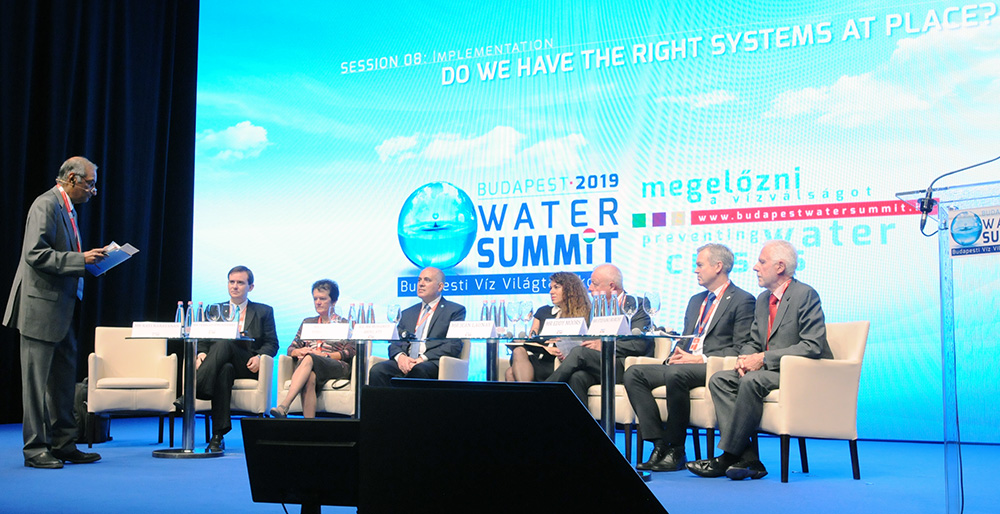
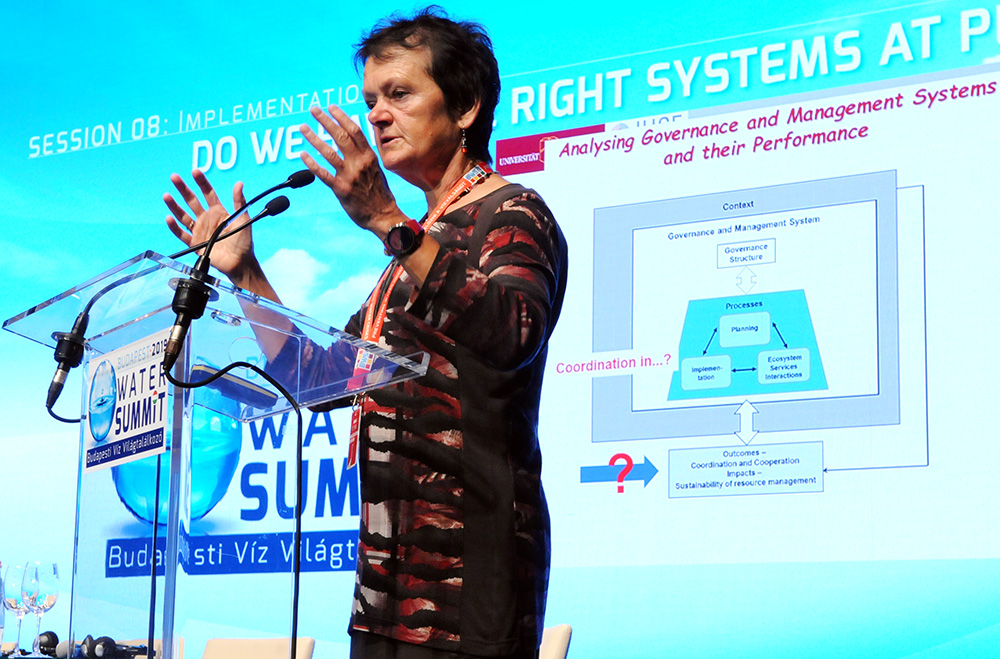
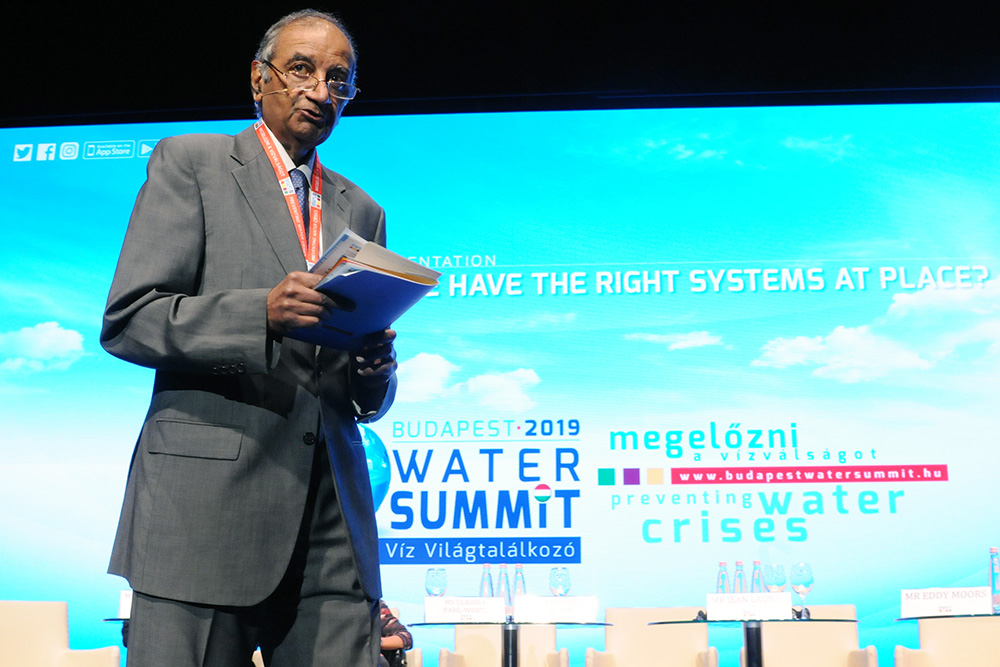
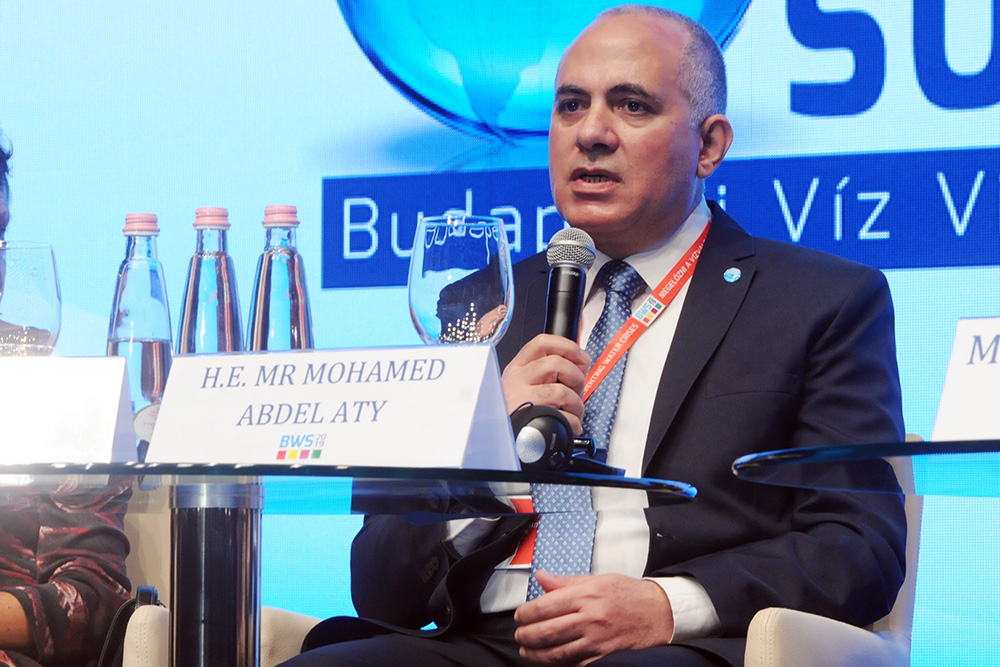
Session 9: Transboundary Water Affairs – How to Move from Risks to Opportunities?
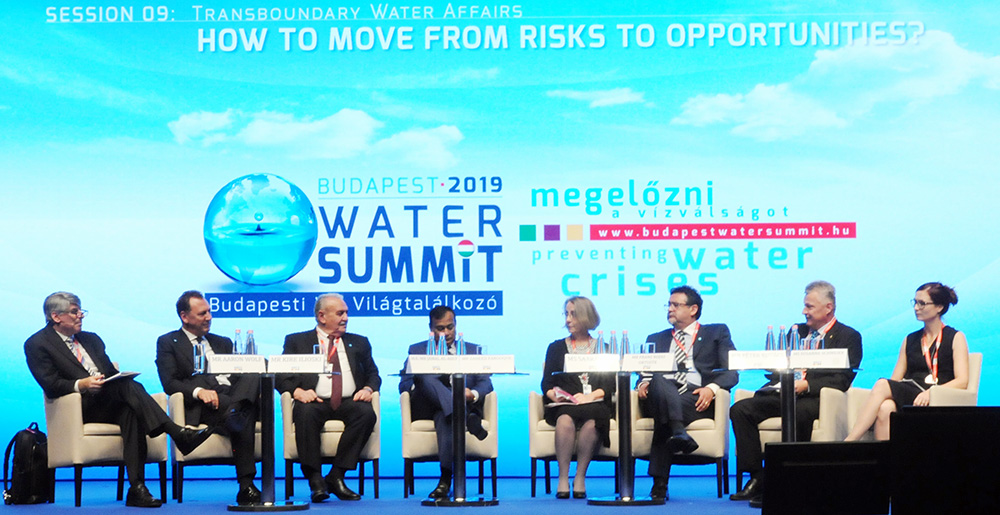
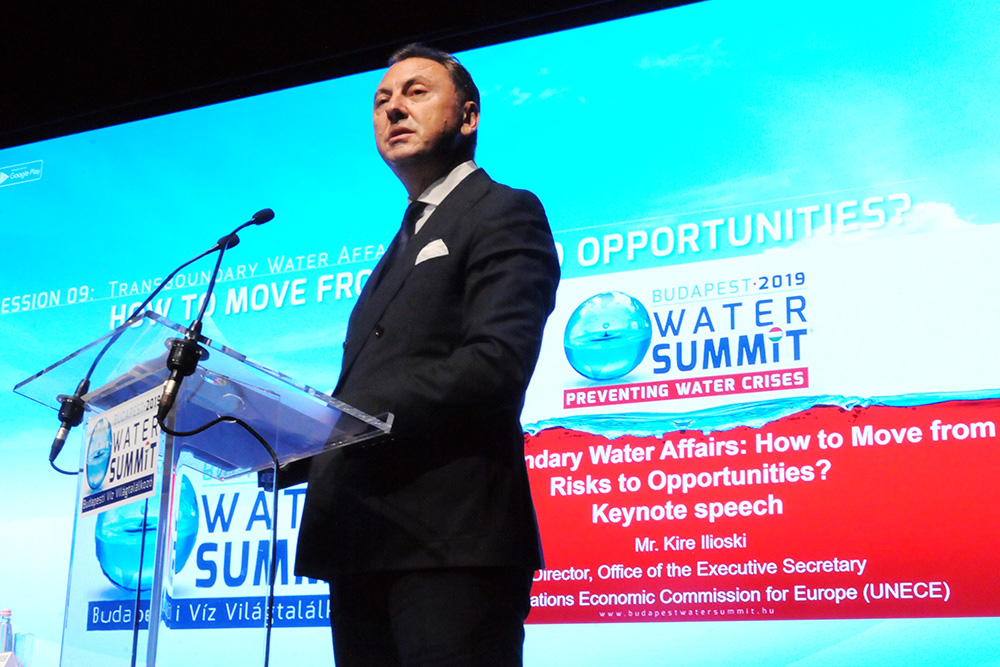
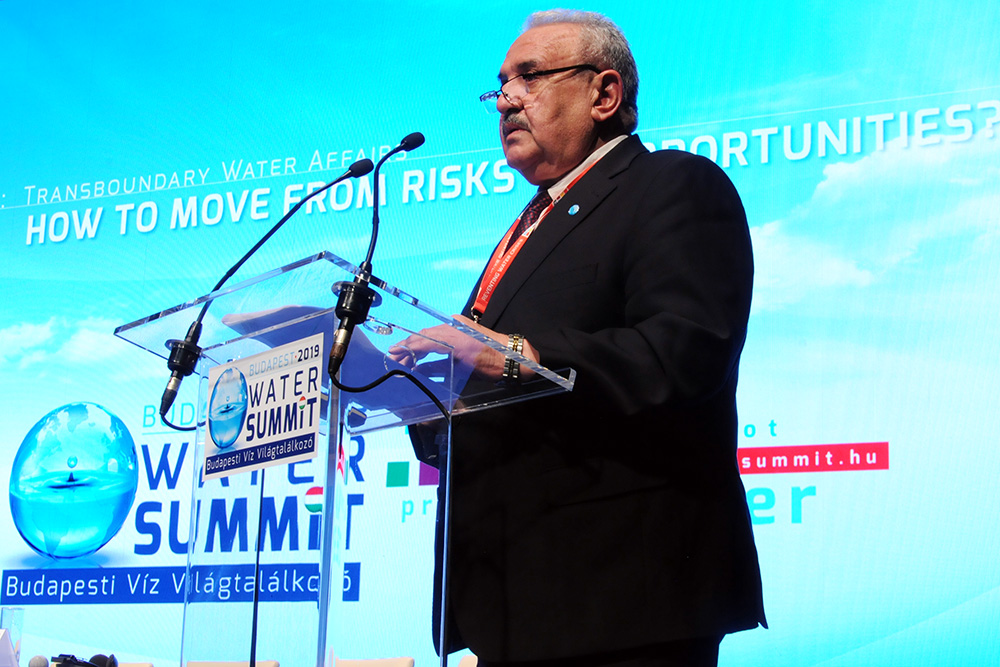
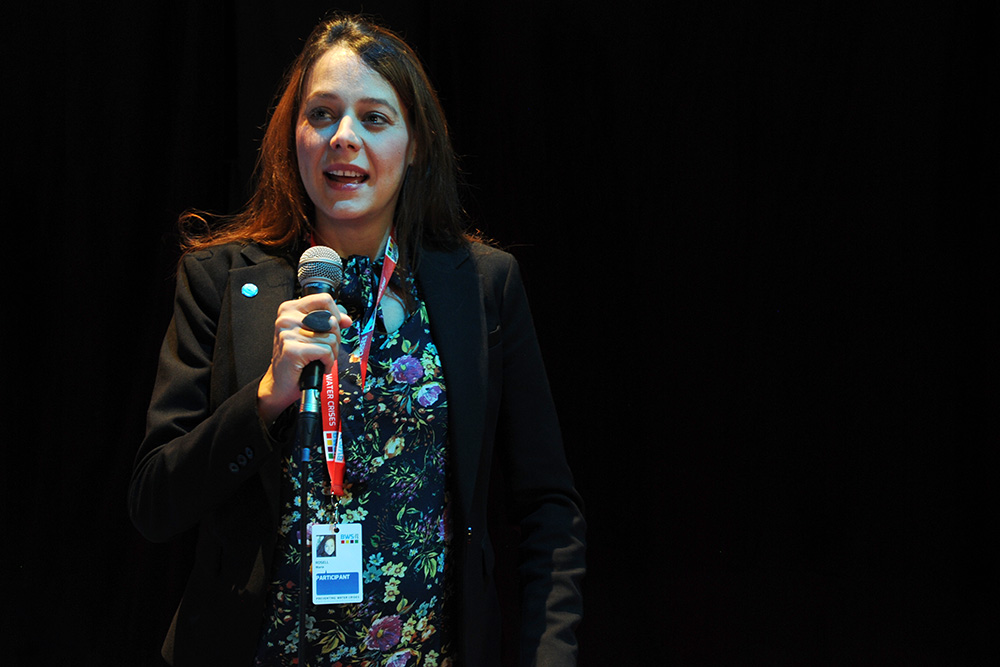
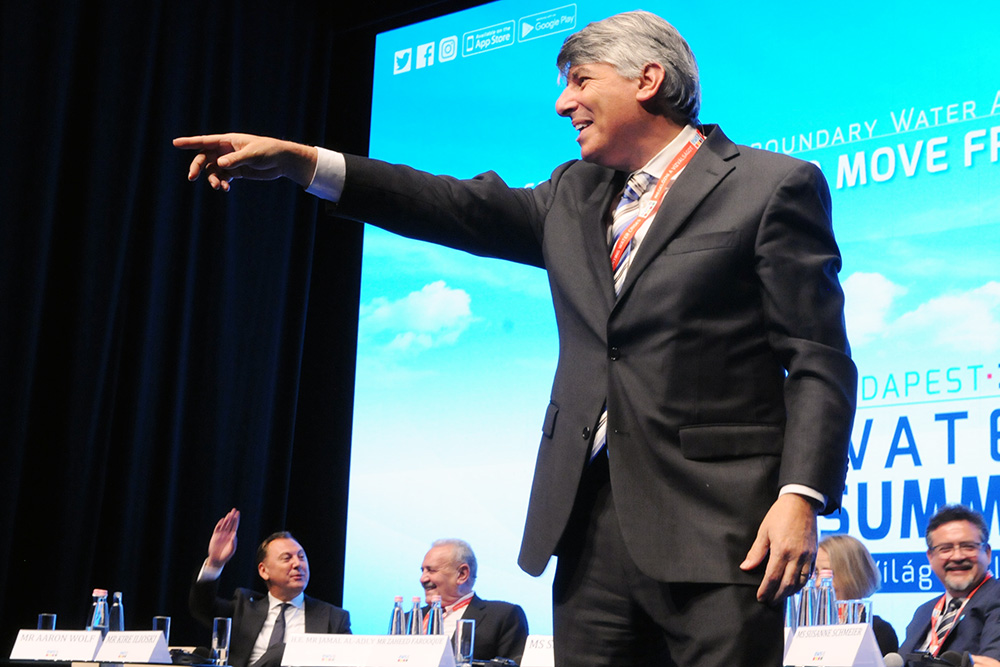
Session 10: Is Our Institutional Architecture Capable of Supporting Transformation?
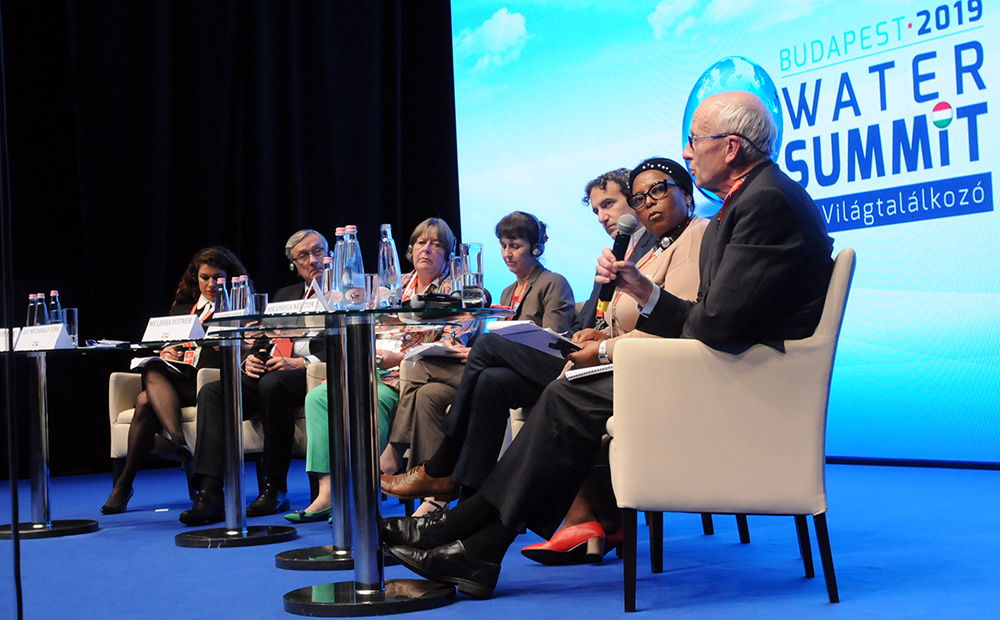
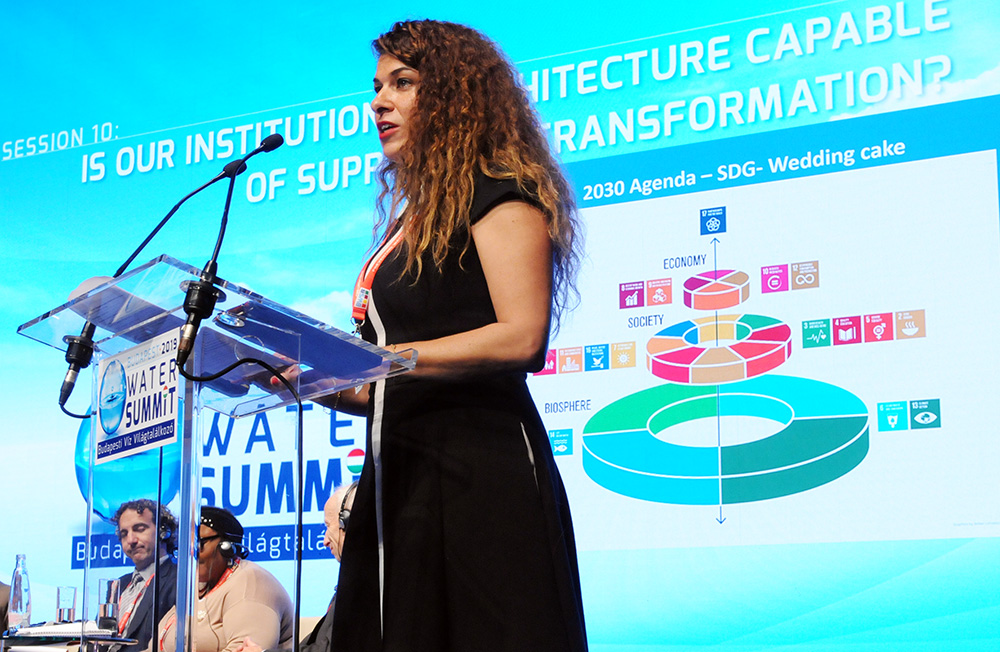
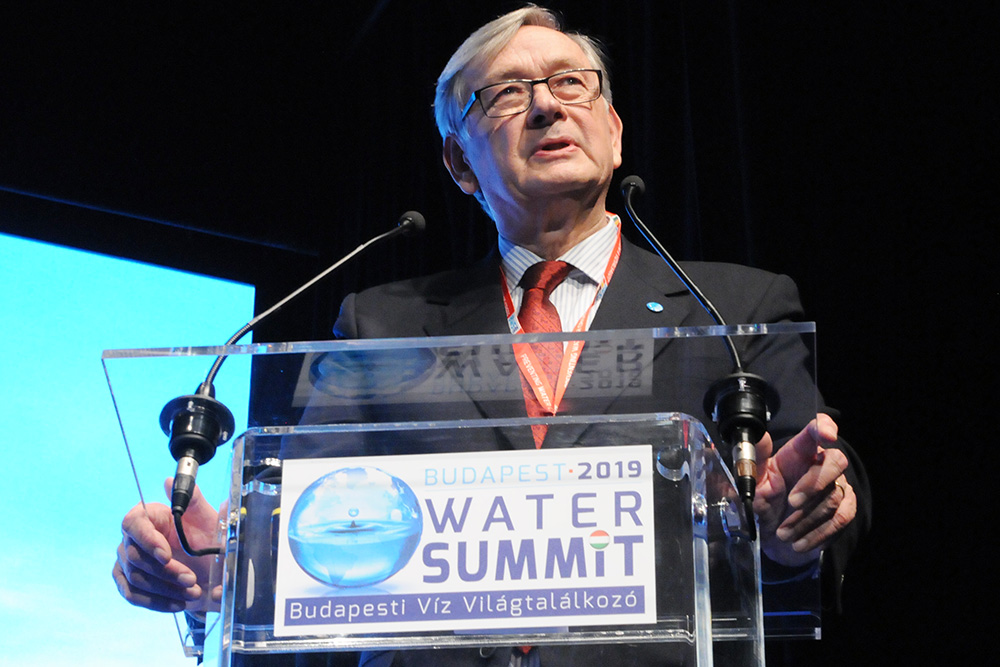
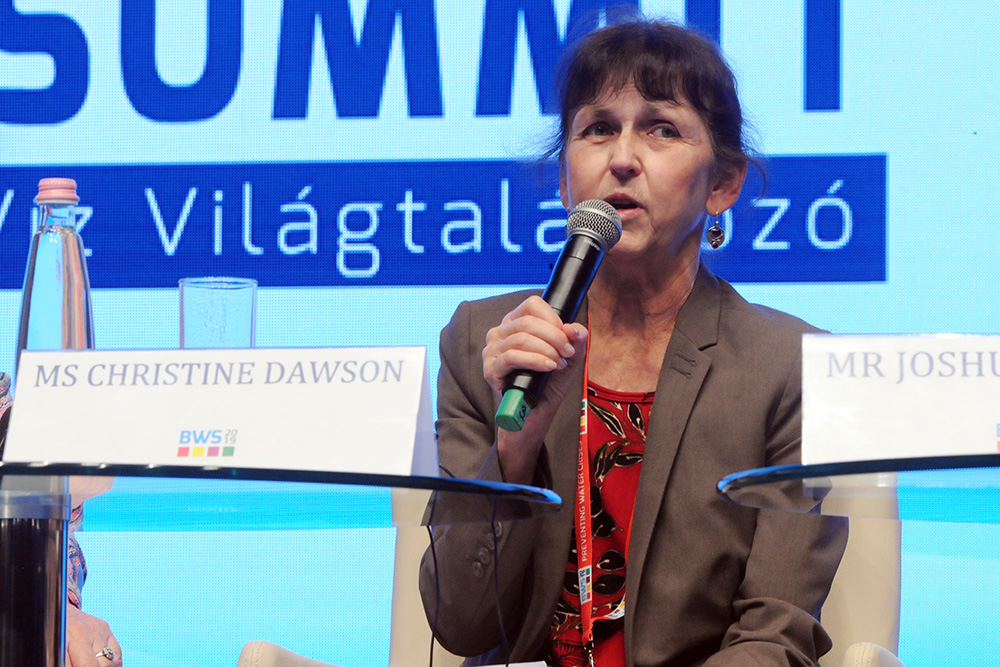
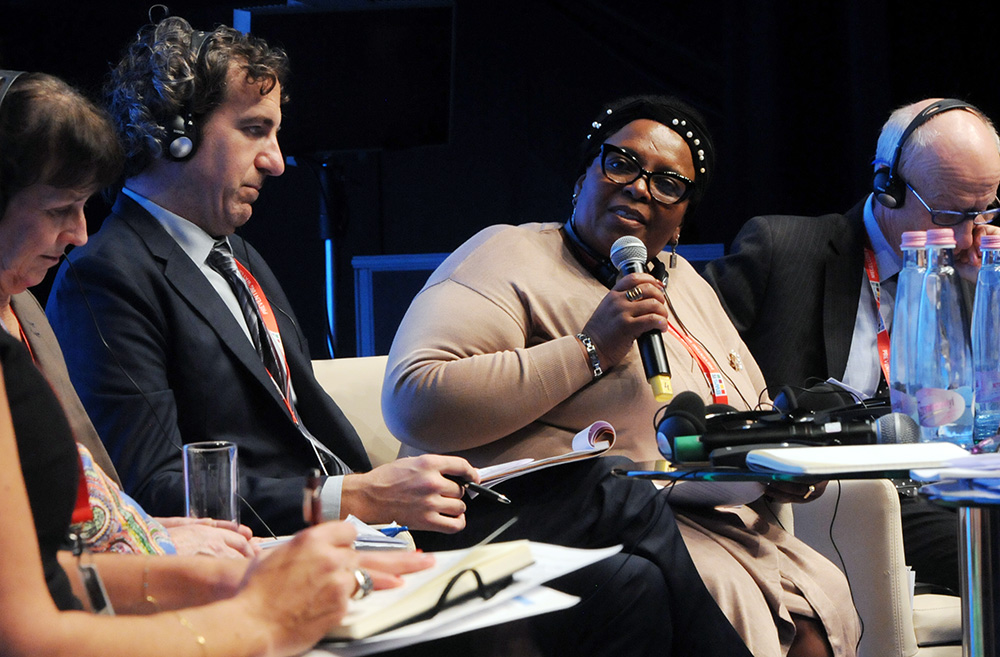
Closing Remarks
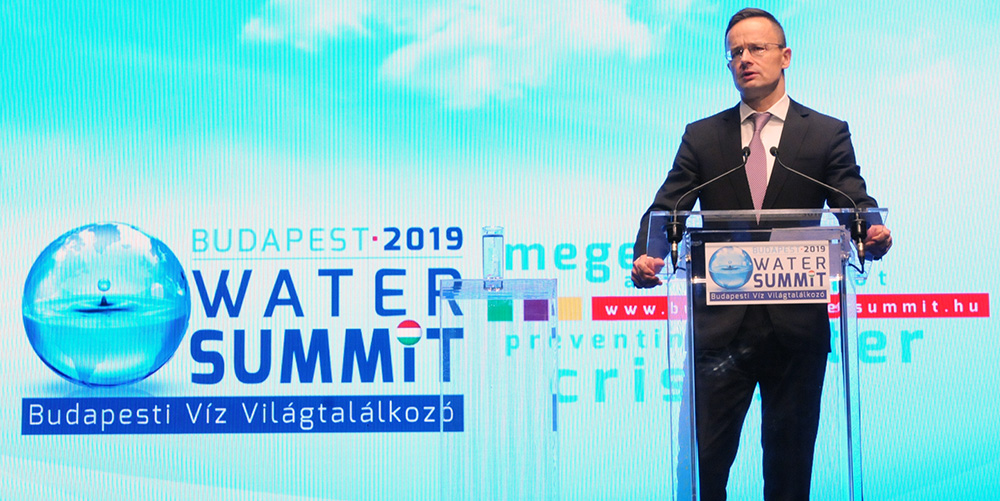
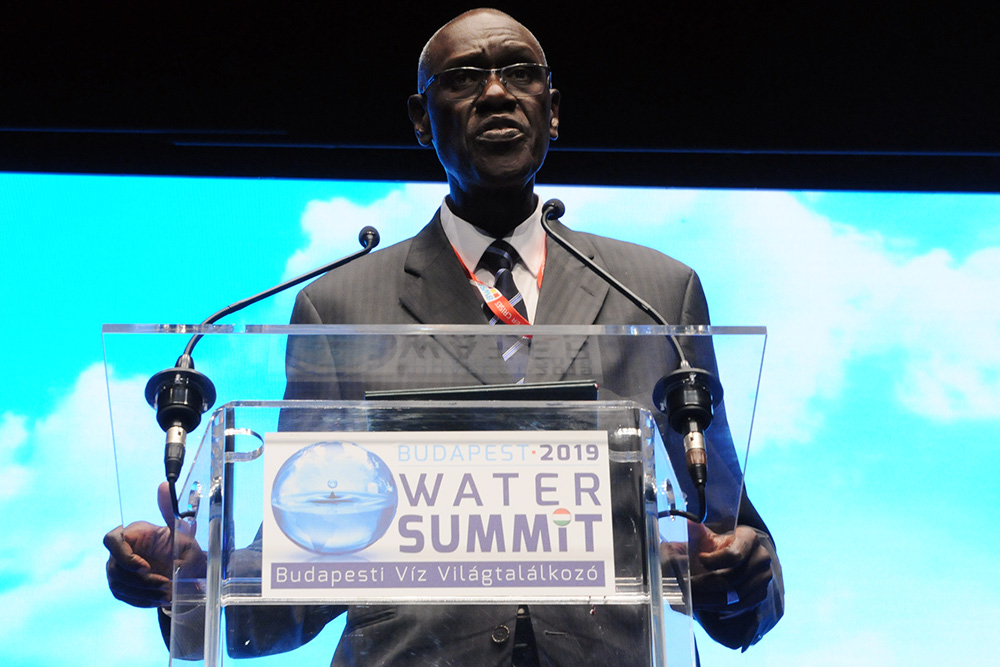
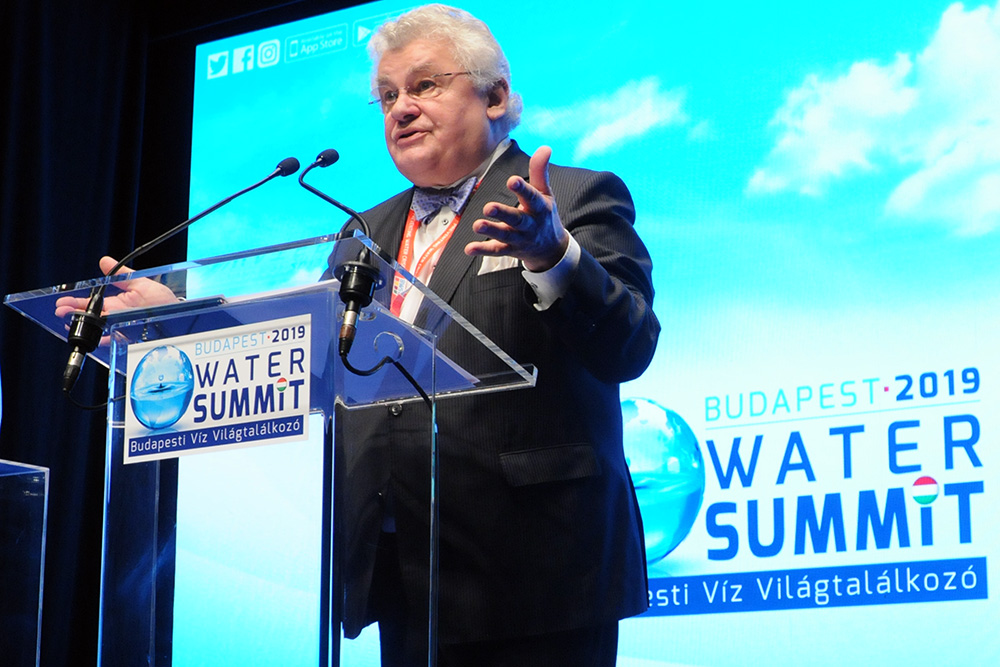
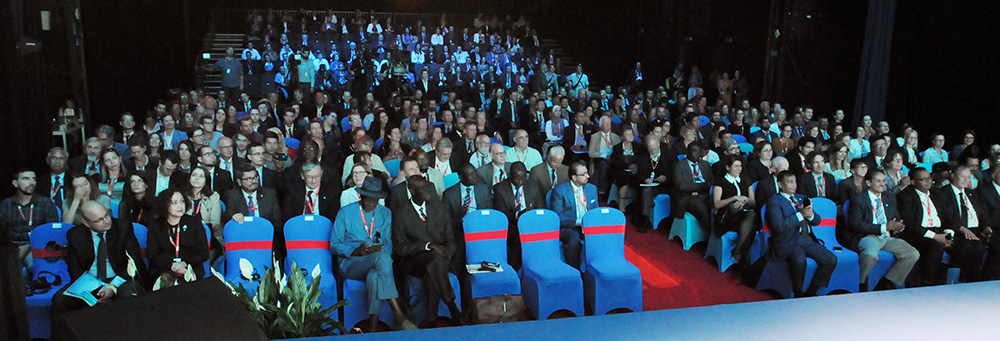
Around the Venue
